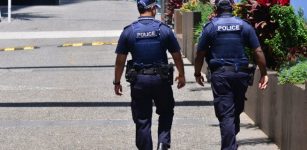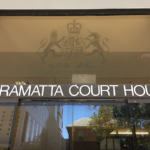What is Considered Reasonable Force in NSW?

Like the general public, the police have certain rules they need to obey.
Police in NSW are allowed to arrest a person if they have a warrant to do so, or without a warrant where:
- they suspect on reasonable grounds that the person is committing or has committed an offence, and
- they are satisfied that the arrest is reasonably necessary for any one or more of the following reasons:(i) to stop the person committing or repeating the offence or committing another offence,(ii) to stop the person fleeing from a police officer or from the location of the offence,(iii) to enable inquiries to be made to establish the person’s identity if it cannot be readily established or if the police officer suspects on reasonable grounds that identity information provided is false,(iv) to ensure that the person appears before a court in relation to the offence,(v) to obtain property in the possession of the person that is connected with the offence,(vi) to preserve evidence of the offence or prevent the fabrication of evidence,
(vii) to prevent the harassment of, or interference with, any person who may give evidence in relation to the offence,
(viii) to protect the safety or welfare of any person (including the person arrested),
(ix) because of the nature and seriousness of the offence.
Reasonable force
Section 230 of the Law Enforcement (Powers and Responsibilities) Act 2002 provides that “[i]t is lawful for a police officer exercising a function under this Act or any other Act or law in relation to an individual or a thing, and anyone helping the police officer, to use such force as is reasonably necessary to exercise the function”.
In addition to this, section 231 of the LEPRA states that “[a] police officer or other person who exercises a power to arrest another person may use such force as is reasonably necessary to make the arrest or to prevent the escape of the person after arrest.”
Any force that is excessive is considered to be an assault under the law.
What is considered reasonable force in NSW depends on all of the circumstances, but if you believe that police have used more than reasonable force to arrest you, or that they continued to use force or were physically aggressive towards you after there was no need, you are able to make a formal complaint to the Law Enforcement Conduct Commission (LECC).
How much force can police use to arrest me?
A reasonable level of force can be difficult to determine, particularly after the event has taken place.
Police are legally entitled to use as much force as is necessary to restrain you, and take you to a police station, but no more.
This means that if you resist arrest strongly, they are able to use a higher level of force to arrest you than if you put up a mild resistance or none at all.
Once you have submitted to being arrested, police are not allowed to continue to use force or to strike you or kick you, although they are allowed to put handcuffs on you if they believe you may try to escape.
If police continued to use force once you submitted to the arrest, make sure you advise your lawyer as soon as possible so they can help you take further action.
Can police use force to search me after arrest?
If you have been arrested, police are allowed to search you . If you resist being searched by police after arrest, they can use reasonable force to search you.
There are strict requirements that police have to abide by when they are searching suspects.
Where possible, the officer performing the search should be the same gender as the person they are searching, and they are not allowed to perform a body cavity search unless authorised specifically to do so.
If police want to search you after arrest, it is generally best to submit to the search.
If you are not under arrest, and police want to search you and you refuse, in some cases, they can arrest you and use force to search you at the police station.
What should I do if police have used more than reasonable force in NSW?
If you have reason to believe that police have used an unnecessary amount of force to arrest you or search you, or they have acted in an overly aggressive manner, you may be able to lodge a formal complaint.
Make sure you take the details of any officers involved, and contact a lawyer as soon as possible after the incident.
If you have any injuries as a result of the force used against you, make sure you see a medical practitioner as soon as possible, and if you can, take photographs of any visible damage.
If police have acted unlawfully, you can make a complaint to the LECC. or instruct your criminal defence lawyer to do so on your behalf.
You may additionally be eligible for compensation through civil proceedings against the NSW Police Force.






